
Our Level Up series shares the strategies that help landscape and lawn care companies get to the next level.
Prescription Landscape, based in St. Paul, Minnesota, is committed to maintaining commercial landscapes with healthy land management practices. The company serves commercial clients, including hospitals, banks, industrial campuses, large offices and retail spaces.
“Their common trait is the importance they place on their brand and willingness to value it,” says Paulita LaPlante, CSO and managing partner for Prescription Landscape.
The company was started in 1980. Founder Colin O’Neill was encouraged by Walter Rasmussen, CEO of NE State Bank in Minneapolis, to start his own landscape business, but said O’Neill needed to understand finance and the importance of working for profit, not cash flow.
O’Neill convinced his fellow classmate from the horticulture department at the University of Minnesota, Mike Teichert, to become his partner. In 2003, O’Neill hired Ryan Foudray and in 2012, Teichert retired.
Foudray became CEO/COO and partner of Prescription Landscape and O’Neill moved to Florida, where he continued as Prescription’s managing partner. O’Neill was suddenly diagnosed with cholangiocarcinoma, a rare type of gallbladder cancer, in December 2015.
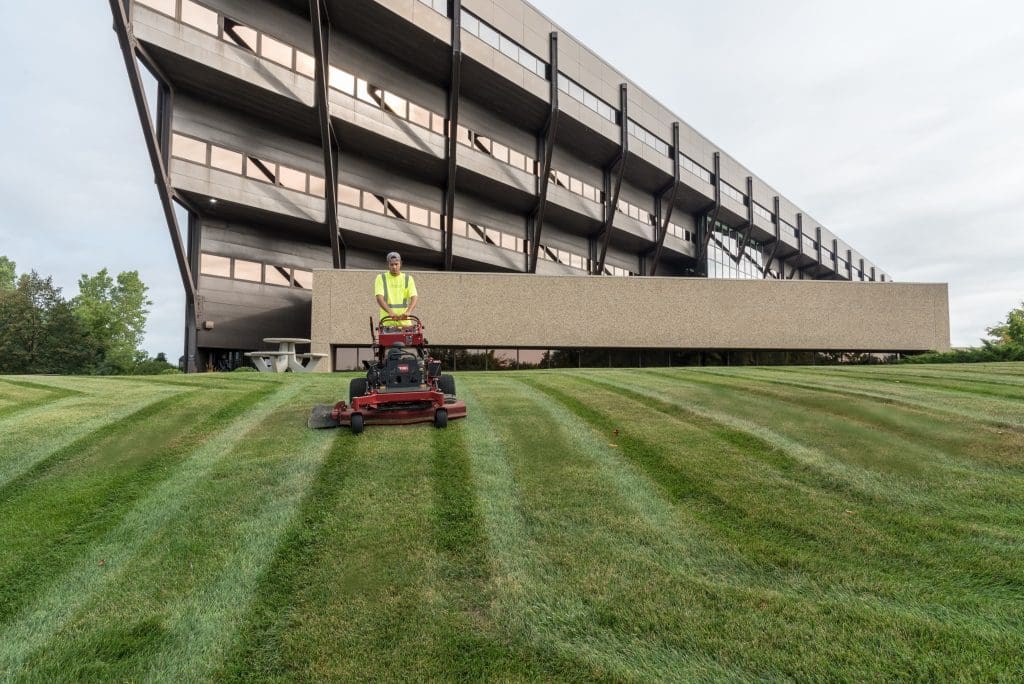
LaPlante, O’Neill’s spouse, says while the diagnosis was grim, he was determined to live. Once it became obvious the cancer was winning, he started having daily training sessions with her. He met with Teichert and Foudray and agreed to transfer his ownership interest to LaPlante. She spent months filling notebooks with information while O’Neill spent time in and out of the hospital.
“When it unimaginably became even worse, Colin asked me to promise that I would not seek a replacement for him but would instead leave my career and become Ryan’s business partner,” LaPlante says. “More than a death bed promise, I had always believed in Colin’s mission and love for Prescription. Having been immersed in his business mind for 5 months and his best friend for 38 years, I agreed because I needed to do this for me as much as for him.”
LaPlante had previously spent 38 years in medical device executive management. She gained executive skills through her employment at Pfizer and its Minneapolis-based subsidiaries. She also gained expert insight by Minnesota’s Medical Alley, which is a networking community.
“Those experiences, coupled with my education, enable me to be a speed learner, to share what I know with others, and to encourage our team members to do the same,” LaPlante says. “When leaders love learning and love seeing others learn, the industry does not matter.”
Prescription Landscape currently has four branches serving the entire metro from St. Paul, Crystal, Shakopee and St. Cloud. The company has an annual revenue of $43 million and they developed a long-range plan in 2017 and set 3- and 5-year goals to encompass revenues, square footage, profitability, service lines, and vision.
“In terms of total revenues, we challenged ourselves to reach $50 million and are comfortable that we will do so,” LaPlante says. “As stated, though, total revenues are only one element. Are the profits sufficient to sustain compensation and quality standards? Are we able to remain personally connected to our clients? Are we able to staff appropriately and maintain high safety standards? These factors must be equally considered when defining ‘ideal.’”
Adding and Changing Service Offerings
The company’s most popular service is snow and ice management. They also offer grounds maintenance, landscaping, irrigation design/install/maintenance, interiorscaping, seasonal color, tree and plant healthcare, water audits and management, sod/seeding and core aeration and parking lot sweeping & striping.
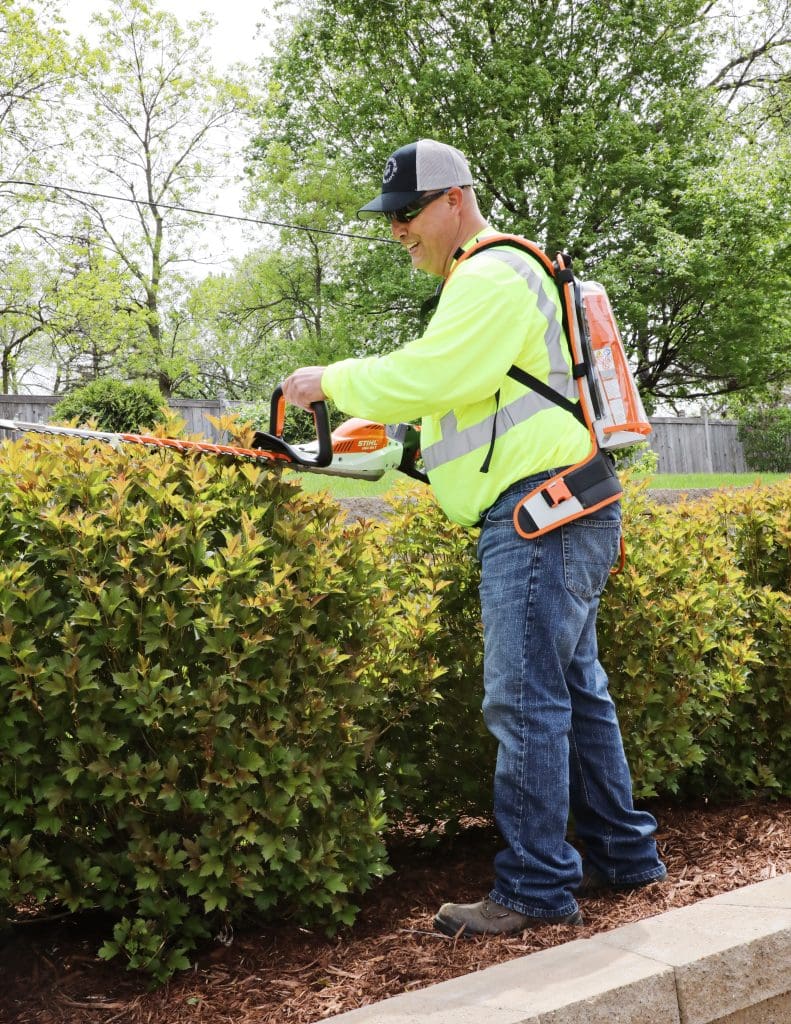
Prescription Landscape also offered RxClean360 for a time. They set up a commercial-grade hypochlorous acid (HOCl) manufacturing operation during the first few months of the pandemic.
“We did not know if clients would purchase it or not, but we decided to do it because we could not find any bleach and we were considered an essential service,” LaPlante says.
As their clients reopened and opted to use bleach for sanitation, this wasn’t a successful service line for the company.
“The true value was our use of it to disinfect all work surfaces at our branch locations including truck interiors,” LaPlante says. “Thanks to HOCl and our sanitizing protocols, we never had anyone contract COVID on the job. Because of this, it was worth the investment.”
With the pandemic in the past and financial fears being abated, more attention is being focused on sustainability for a lot of Prescription Landscape’s customers.
“The tide is finally turning as decision-makers consider their personal decisions as homeowners and translate that into commercial landscape decision-making,” LaPlante says. “Many companies are mandating that environmental and social governance policies are put into practice and this has resulted in increased questions about water conservation and conversion from gas to electric equipment.”
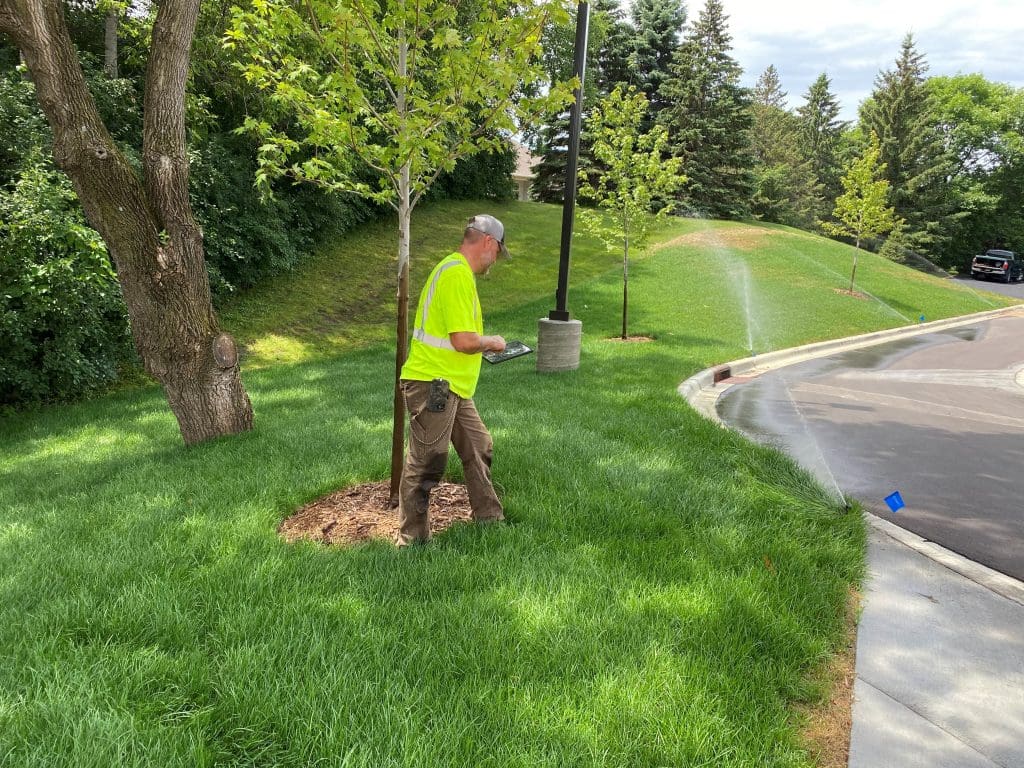
Water conservation is a major concern in Minnesota after three successive years of drought. The push for conversion to all-electric equipment is also being shaped by legislation. LaPlante expects this to dramatically escalate over the next 24 months.
The company also offers urban land care, which is for small properties surrounded by concrete. Demand has resulted in proliferation of unique services such as green roofs, amenity decks/patios, living walls, interiorscape, and irrigated dog runs. The urban land care team is led by a certified arborist and horticulturist and is comprised of passionate gardeners.
Keys to Success
LaPlante credits the company’s success to their employee retention, shedding unprofitable contracts and holding firm on equipment productivity goals.
Prescription Landscape has grown steadily over the years thanks to their intentional efforts.
The company acquired Arteka Outdoor Services in June 2017. In March 2021, Prescription Landscape acquired Peerless Lawn Care, a residential turf health care company, and in March 2022, they acquired Clearwater Irrigation, a residential irrigation service provider operating out of Chanhassen, Minnesota.
LaPlante says beginning with their first acquisitions, one of the notable reasons for steady improvement in growth over the past few years has been deliberate client recalibration.
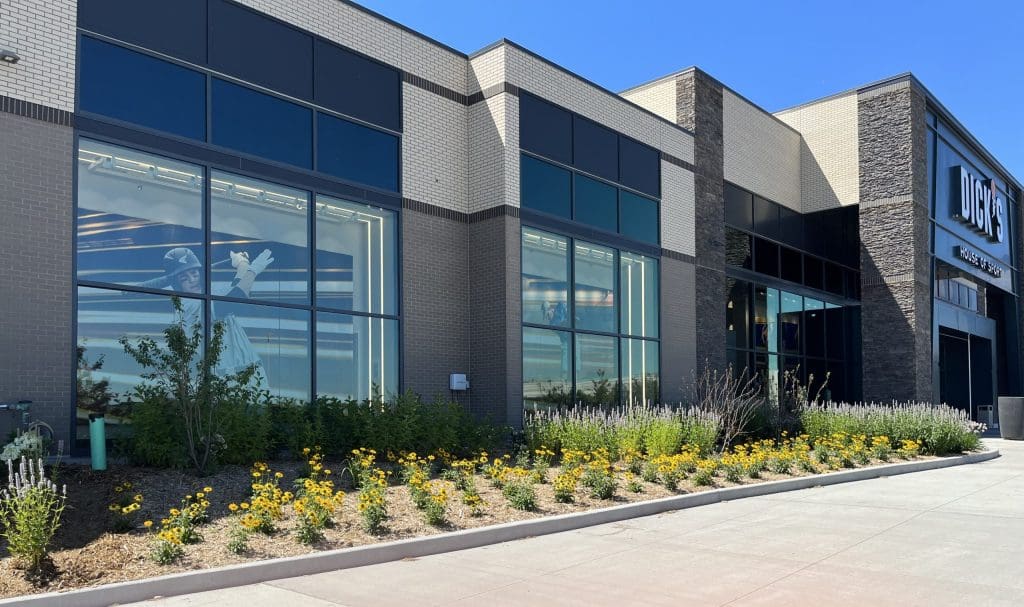
“We phased out clients that had unrealistic demands versus contractual specifications particularly as those pertained to snow and ice management,” she says. “It is a challenge to pivot from client types, but Ryan is always clear with his sales team about the business need and that clear communication ensured everyone’s buy-in.”
LaPlante says that they always want top and bottom-line growth, but they determined they could do a better job of focusing on growth in profitability.
“Goals such as these translate to more labor and higher prices, which is not congruous with everyone’s budgets,” LaPlante says. “Our growth plans have at their core the need to provide year-round, full-time employment for our team members.”
As an NALP member, LaPlante says they have benefited from attending industry events by learning from speakers and networking with peers.
“The professionalism of the certification programs is integrated into the backbone of our policies and procedures,” LaPlante says. “The Edge magazine articles are a simple way to keep current topics in front of management and ensure we are always looking outward.”
Prescription Landscape has also benefited from using NALP’s safety tools. LaPlante says it’s saved them time and broadened their thinking.
“We used the Compensation Study to better help us in our annual review of salaries in comparison to companies both in Minnesota and nationwide,” LaPlante says. “We have utilized the training manuals and we implemented several ongoing training and credentialing programs to our team members.”
Recruiting and Retention
During the growing season, Prescription Landscape employs around 190 people, but this doubles during the snow season. Because of the nature of their work, the company doesn’t use the H-2B program. Instead, they focus on having a solid base of year-round employees and aggressively hire up for the snow season.
“For the past 5 years, we have had a full-time recruiter who constantly posts in all the service industry job outlets and on our website,” LaPlante says. “We have maintained a non-solicitation rule when it comes to our local competitors. We have not been able to take a break from recruiting since the pandemic, so we are fortunate to be able to afford this.”
Prescription Landscape started offering a $1,000 sign-on bonus as a way to attract applicants during the pandemic, but LaPlante says it has become a necessity as everyone is doing it. They also have a referral bonus program that helps them find like-minded team members.
LaPlante says they are able to retain their employees by offering year-round work.
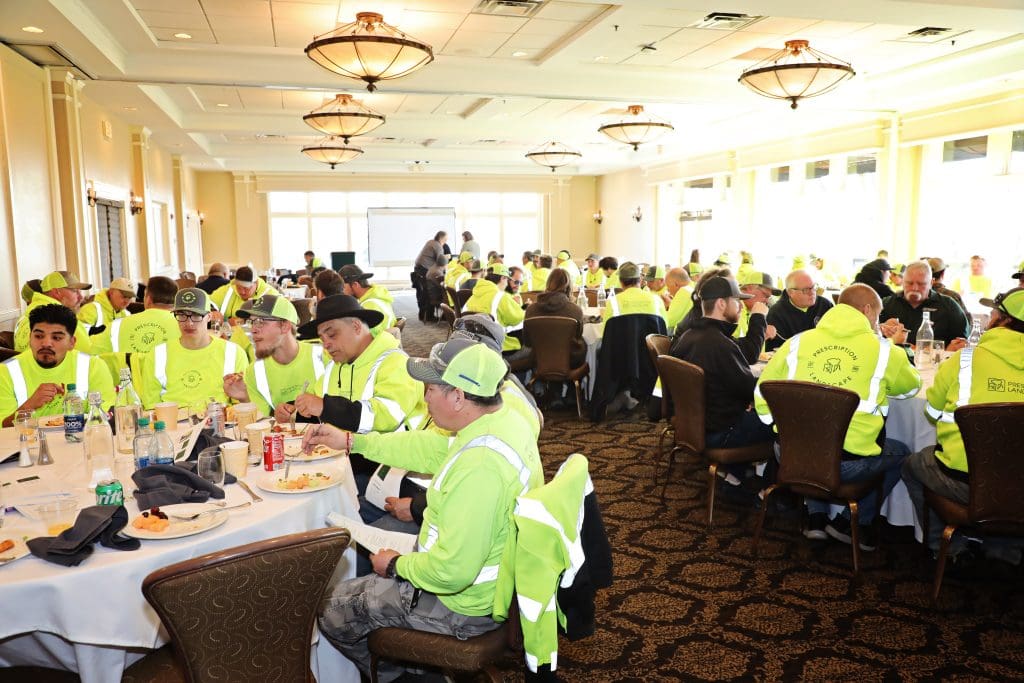
“We do a good job of providing hours and compensation even during the winter when snow can be unreliable,” she says. “This is important because it demonstrates that our company offers a career path, not just a job.”
The company also offers living wages, a broad array of benefits for full-time and part-time employees, profit sharing and career paths. LaPlante says they are a benefit hub company where employees and their families enjoy discounts, rewards and perks. They have an apparel and safety shoes/boot program and promote safety within the company.
“We also seek and develop Spanish-English speaking leaders,” she says. “When English is not your first language and your crew lead does not speak Spanish, it can be frustrating. When leaders look like you and talk like you, it inspires loyalty.”
As the company grows, LaPlante says staying connected with team members and maintaining quality has been challenging.
“People want to know that you personally care about them, hear their opinions, understand their daily work challenges, and acknowledge their contributions,” LaPlante says. “The bigger you get, the more challenging it is to do this, but it greatly matters.”
Prescription Landscape is able to maintain their culture by investing in their people. They increase team members’ compensation as they achieve certain certificates or certifications.
They also have multiple employee appreciation events throughout the year.
“These are especially important during the busy winter season, especially after back-to-back snowfalls,” she says. “It’s important that we acknowledge that the lifeline of our company is our employees and the incredible work they do in service of our customers.”
Click here to read more Level Up stories.



